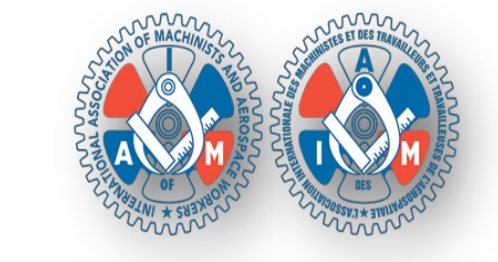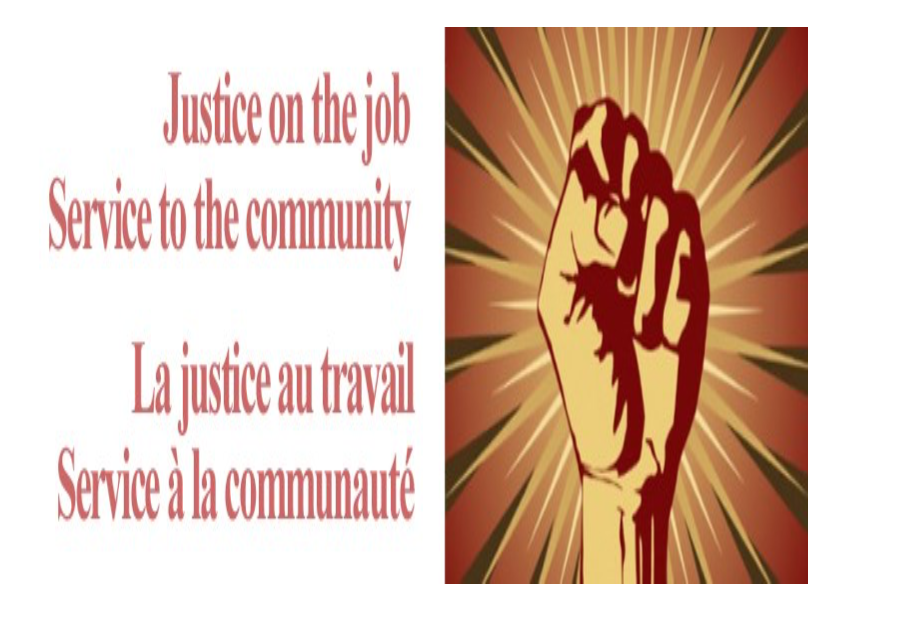The Checkpoint Special Edition (Volume 1, issue 1).


Health And Safety Response: Addressing Rising Covid19 Cases
After months of working to resolve health and safety issues, and having exhausted all available processes, we are informing members of local 2921 that we have had no other recourse but to contact an occupational health and safety (OHS) officer from the Labour Program. In escalating several problems to the Labour Program, a government agency, our goal is to address outstanding health and safety concerns, the most pressing being the rise in COVID-19 cases among screeners.
This has been recognized as a major problem and will be addressed thoroughly, including processes in dealing with and tracing of cases. The employer has been ad- vised that in addition to following Public Health guidelines, it is equally
important to consult guidelines from agencies that issue workplace specific recom- mendations. Public Health guidelines are recommendations for the general public, while those issued by agencies such as, the Centre for Occupational Health and Safety provide guidance to both employers and workers in specific work environments.
We are adamant that workplace safety measures must go above and beyond
basic and general guidelines. The union position is that the outbreak is work related and we encourage members who have tested positive to file a claim with the WSIB. While we cannot guarantee that claims will be approved, we will work diligently to address root causes of the workplace spread.
If you need help filing a claim, please contact the IAM local lodge WSIB representa- tive, sister Yanique McInnis at this email; yaniquemcinnis@hotmail.com.
Don’t hesitate to contact a health and safety representative in your terminal if your concerned about cleaning protocols, sanitization, contact tracing or if you have questions about coming in contact with someone who is infected.
Remember, close contact is defined as contact lasting 15 minutes, without social distancing and without a facial covering.
Our member’s health and safety at work is of the utmost importance and not only are we working diligently in managing the current situation, we are adamant that preventative measures must be taken to avoid preventable illness, injury and acci- dents in the workplace.
As more information becomes available it will be shared with members. Please be vigilant in following safety guidelines and be safe. We sincerely wish those members who have become ill a speedy recovery and for those who are not affect- ed, please be safe.
NOTE: If you think you have been exposed or might have contracted COVID-19, do not report to work. Notify the employer, get tested and inform the employer of the results. Follow instruction issued by public health, and if test positive, file a claim to WSIB and notify the employer so they can file requisite paper work on their end.
WSIB: Injured At Work, Here’s What You Should Do
Workplace injuries are very common, yet very underreported. The culprit of under reporting is often due to lack of knowledge about the process, and admittedly, it can be confusing. Below we’ve outlined
some things to help you in case you’re injured at work. Remember, act immediately and don’t delay triggering the process; it could make a major difference for you in the future.
1. Report the injury to your supervisor immediately and ask they fill out an incident/accident
report as soon as possible. Make sure you ask for your copy of the report and that your
supervisor provides it for you in a timely manner.
You shouldn’t delay reporting an injury or accident, however minor it might be. The longer you
wait to report an injury, the harder it becomes to prove it was workplace related. Your employer must report your injury to WSIB if it causes you to:
* Miss time from work; and/or
* You need health care that is more than minor first aid
2. Contact a union rep or the health and safety committee. These resources will help guide you in the process and make sure you have your bases covered. They can also direct you to additional resources you may need.
3. Did you know you have to see your doctor within 24 hours of injuring yourself at work? The clock starts ticking as soon as you are injured, so don’t delay going to see your family physician, (if you have one). Sometimes pain associated with an injury comes days after, so don’t delay. Let your doctor know that the injury was work related and describe exactly what happened and symptoms you’re experiencing.
Going to a walk in doctors office is fine, but your family physician knows your medical history and is best positioned to make assessments about your health. Confirm with your doctor that they will send
their report to WSIB.
Lastly, your employer should pay for any travel costs if you need to go to the doctor or hospital
on the day that you are injured.
4. Keep detailed notes! Write notes soon after the incident, and document the following; – Dates and times;
– Names of witnesses who saw the accident;
– The supervisor you reported the incident/accident to;
– The location of incident;
– Health care visits;
– Workers’ compensation records/conversations; and – Meetings with the employer
*Remember, notes are incredibly important. Your employer may contest that the injury happened at work, detailed notes will help your case in the long run.
IN SOLIDARITY

Delay Record Of Employment (ROE): Take Action Now!
The issuing of timely record of employment (ROE’s) in a timely manner is a hot topic for many members
of local lodge 2921. Members have reported that the employer has deliberately taken an unnecessarily long time to submit ROE’s on their behalf, which has caused delays in accessing benefits and members suffering damages by way of unnecessary financial hardship.
The Employment Insurance Act and accompanying regulations are clear in defining the process for employers for submitting ROE to Service Canada. Employers that issue ROE’s electronically and have a bi-weekly payroll, must submit ROE’s immediately within 5 calendar days (including weekends) following the last day of work by the employee or the last pay period for the employee, regardless of the reason the employee has stop working. That is, last pay period must first end and then the ROE is to be issued to Service Canada, as there is absolutely no grace period or leeway’s given to employers to submit ROE’s in the regulation.
Employers that are negligent and exhibit disregard for the regulation in issuing the stipulated timely ROE’s can face fines or other legal ramifications.
If you or anyone you know, believes their ROE was not issued on time, please contact your chief steward, shop steward or any union representative, as you may have grounds to file a grievance. You may also email Service Canada and report discrepancies at this email, NA-ERO-GD@labour-travail.gc.ca.
Knowing your rights and the process ensures you receive the benefits you are entitled to.
Be informed, Ask Questions and Take Action.

